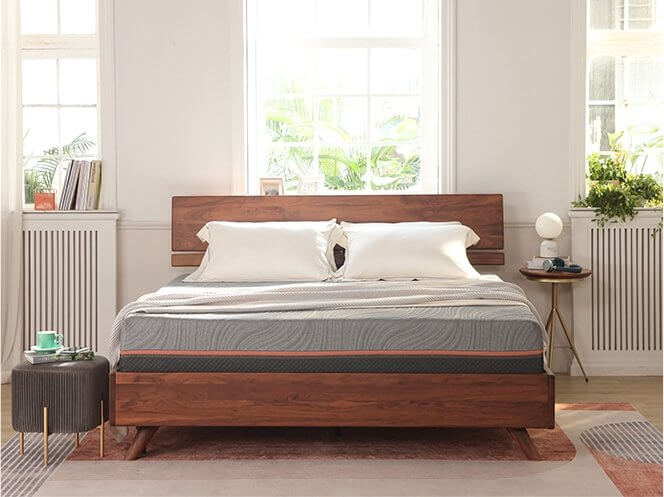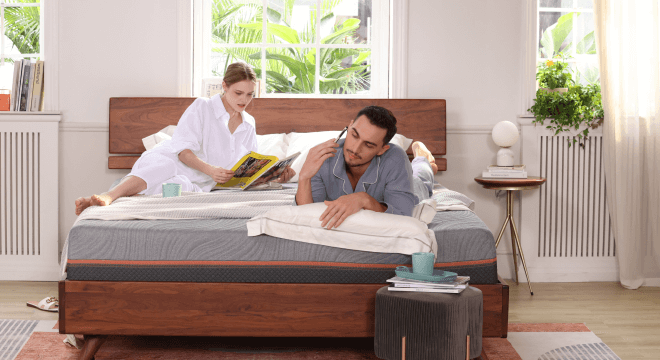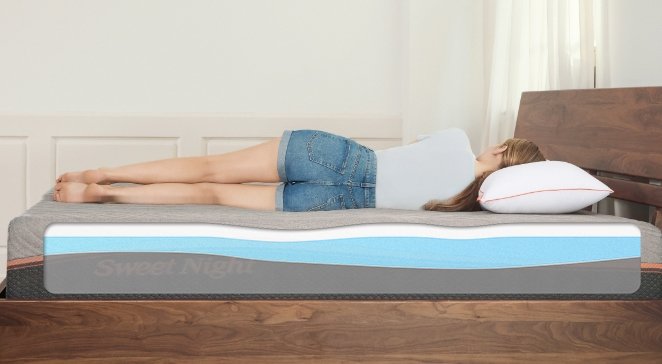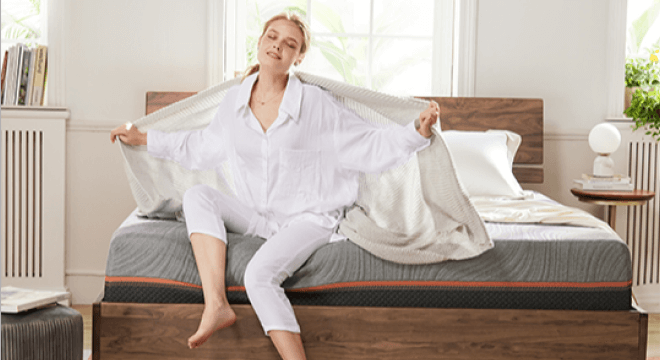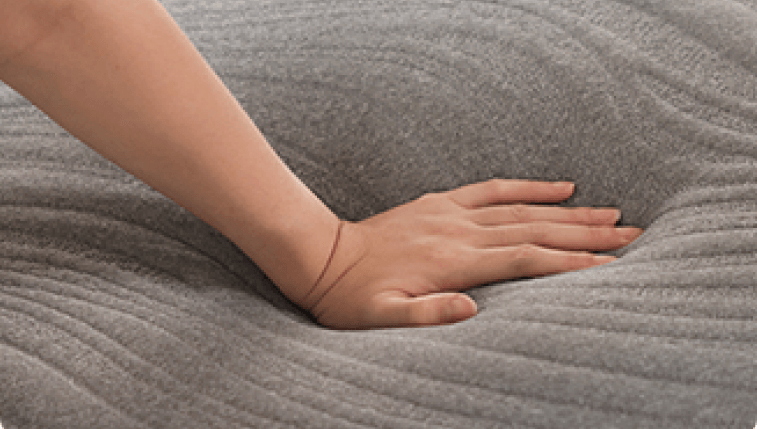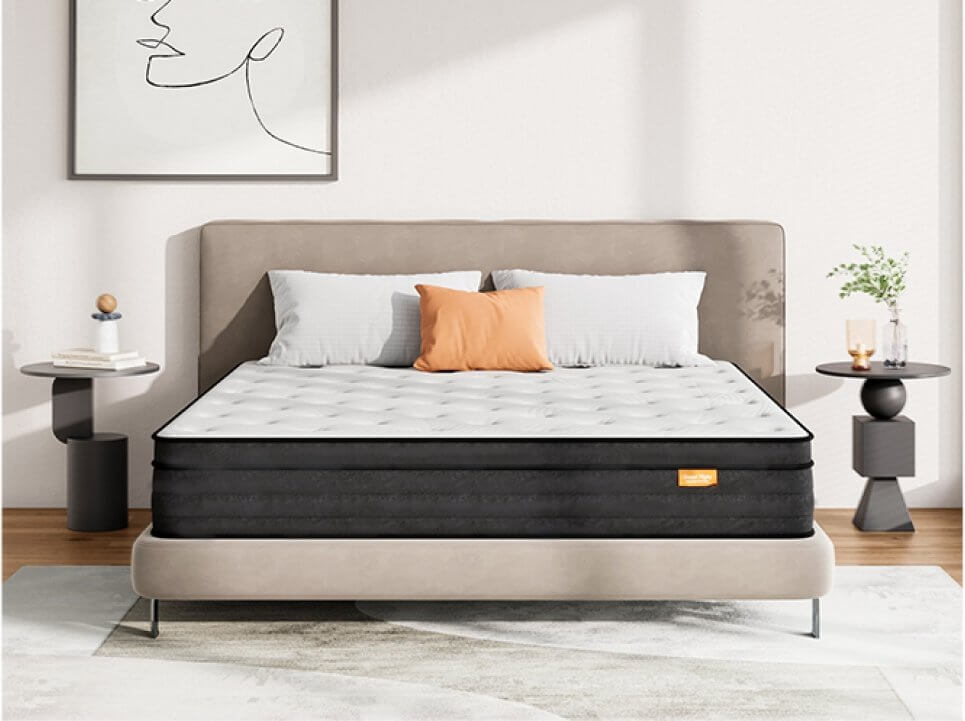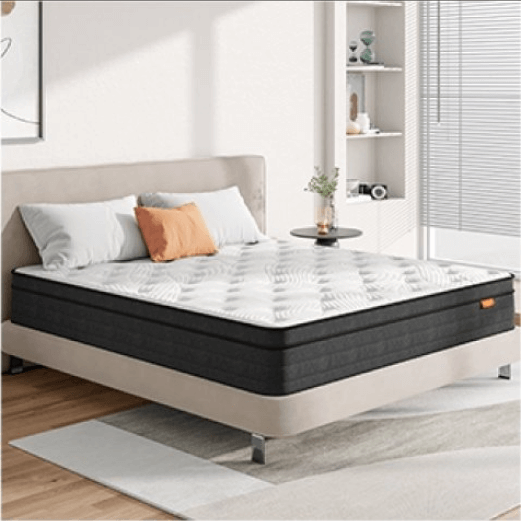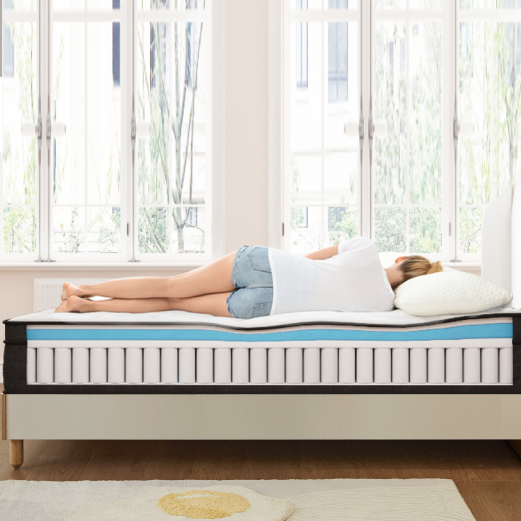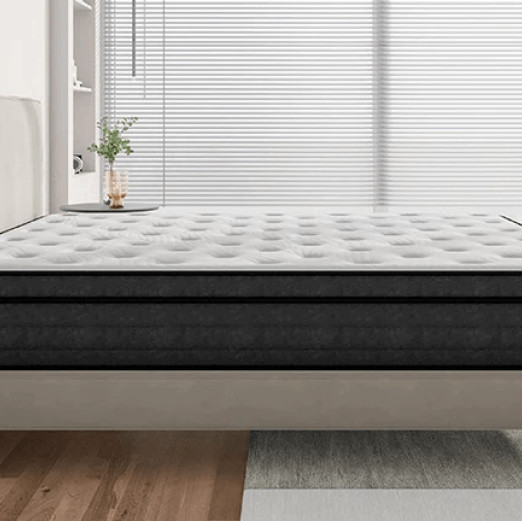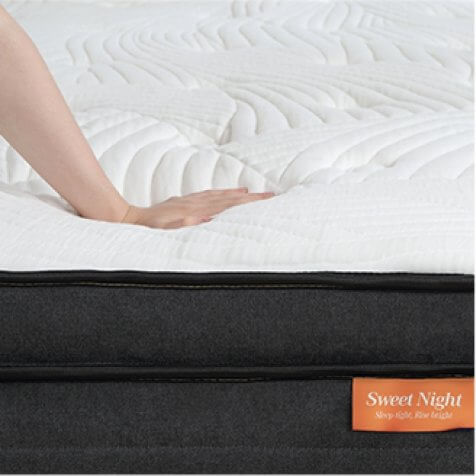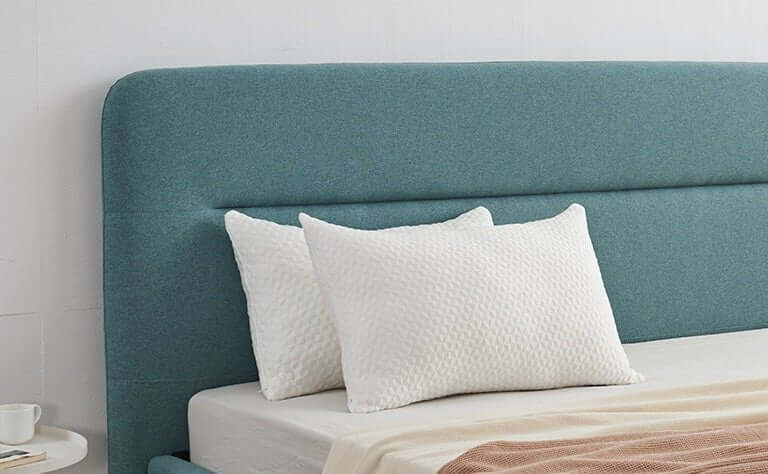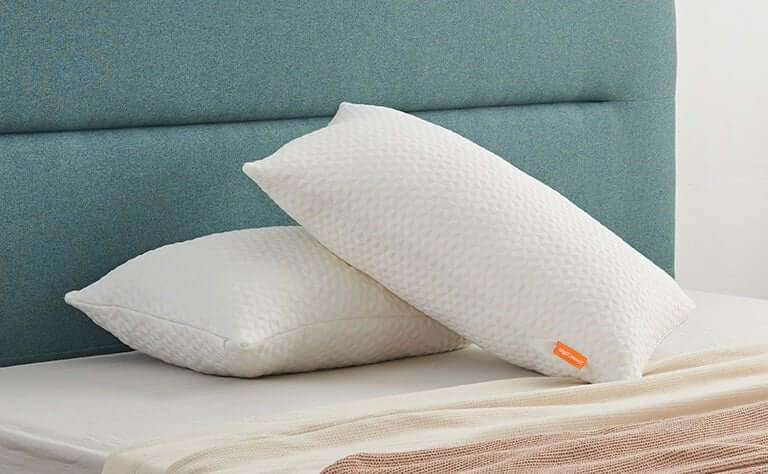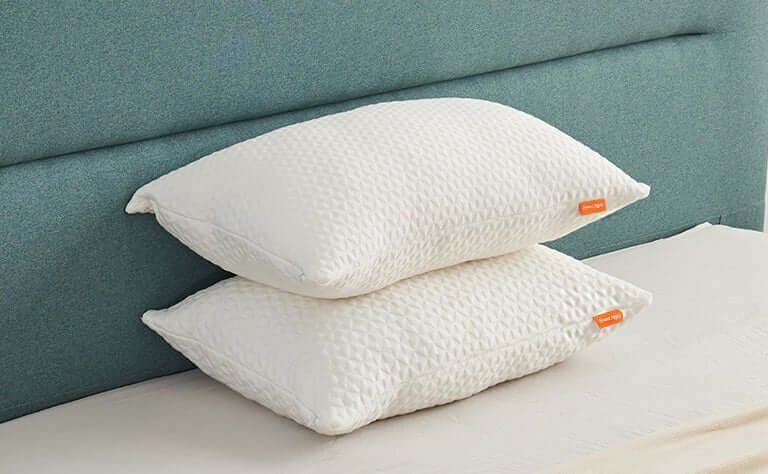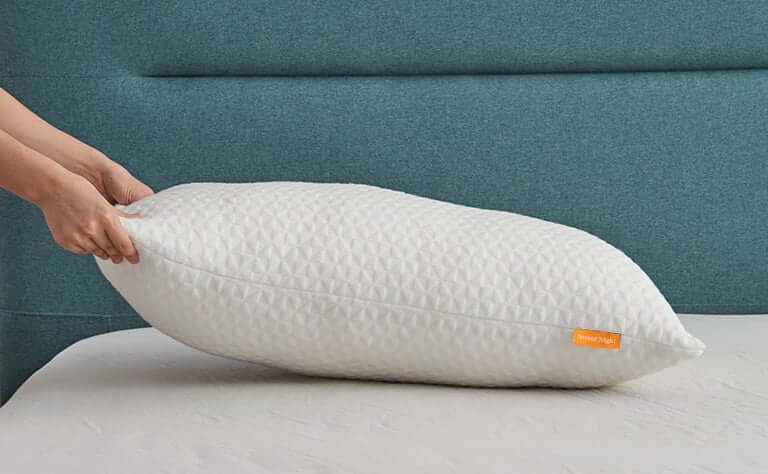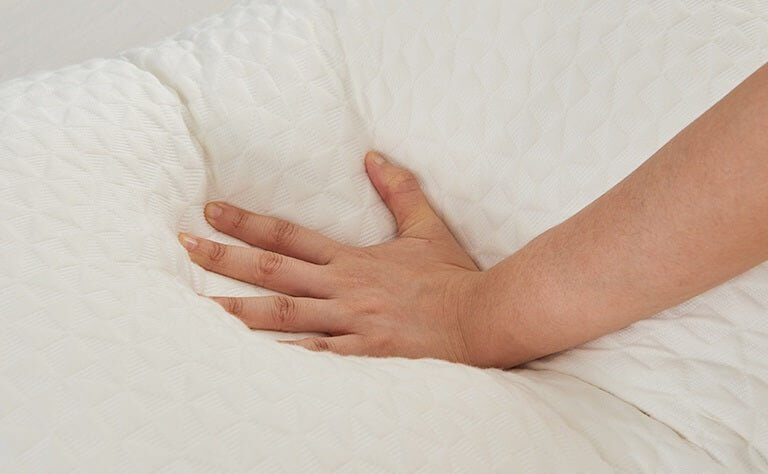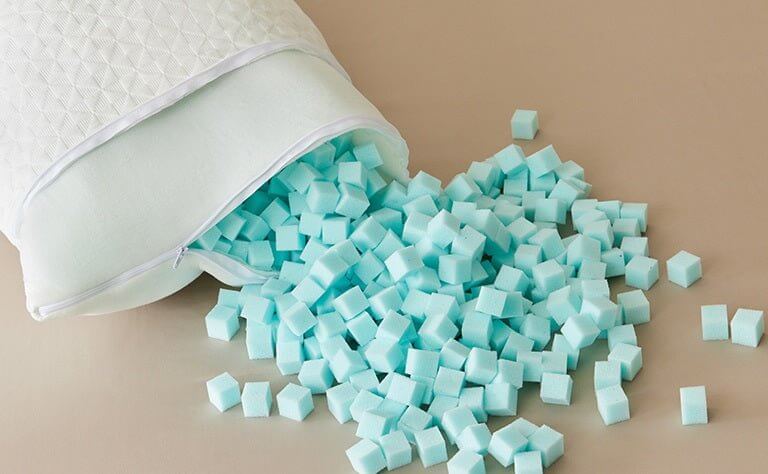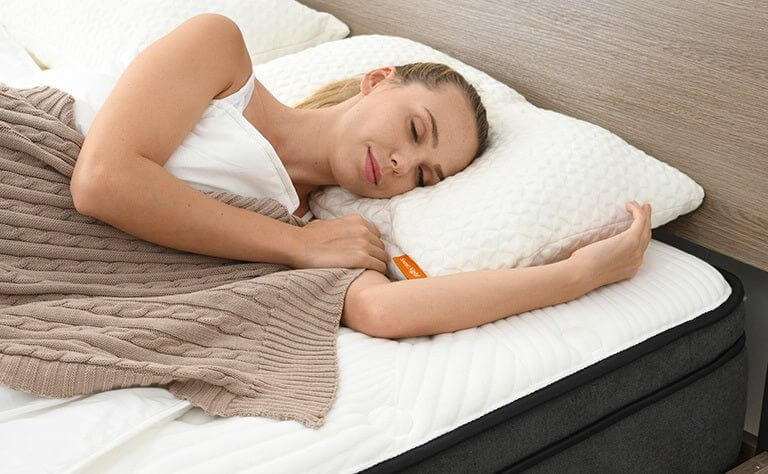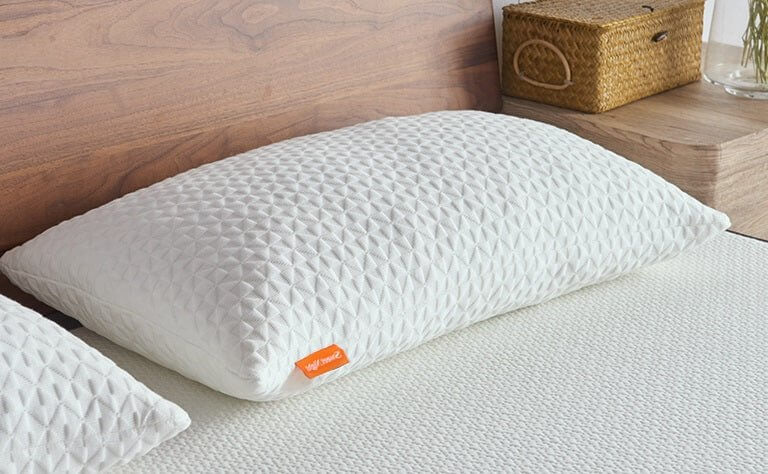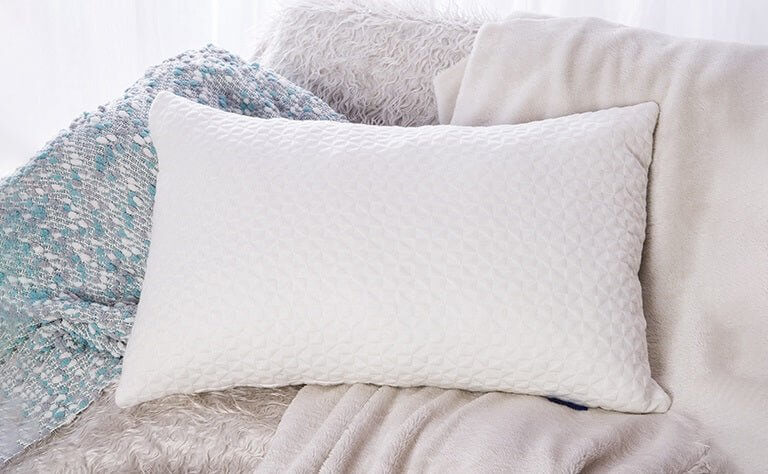Why Sleep Is Such a Big Deal
Sleep is one of the most important things in maintaining personal health. It is a restorative process that is critical to our physical and mental functions. It also supports our ability to fight disease, cleanse harmful toxins from the body and much more. Most people will spend a third of their lives sleeping each night with an average sleep time for most adults to be between seven to nine hours.
People with chronic sleep problems such as insomnia may be prone to panic attacks and chest congestion. They may also suffer from memory loss due to lack of sleep. According to American Sleep Association, nearly 70 million Americans have sleep disorders, of which insomnia is the most common.
The length of time it takes for you to doze off, also known as sleep latency varies from person to person. The sleep latency of a healthy adult is usually between 16 and 30 minutes, and this time does not include your bedtime preparation routine such an eye mask or brushing your teeth. Of course, there are some differences between different people, some may fall asleep in shorter periods of time while others take longer. In general, sleep latency longer than 45 minutes is an indicator of poor sleep quality. Latency periods that are too long or too short is generally a possible characteristic of an underlying health problem.
12 Tips to Help You Fall Asleep Faster
For some people who suffer from insomnia or sleep deprivation, here are some tips to reduce anxiety before sleeping. It is designed to minimize bedtime stress and trigger a pre-sleep relaxation state, which helps you fall asleep faster. However, it is worth noting that if you are experiencing insomnia or sleep disorders for quite some time, seeking professional help from a certified sleep specialist is the best way to ensure that your sleep problems do not affect your health in the long run.
12 Tips to Sleep Faster Navigation
Controlled Breathing
Meditation
Exercise In Daytime
Avoid Napping
Using Smell
Using Sounds
Using Food
Take A Warm Bath
Using Hi-Tech
A Suitable Mattress
Away From the Screen
Melatonin
Controlled Breathing

Typically, when you lie in bed and enter non-rapid eye movement (NREM) sleep, your heart and respiratory rate gradually slows down. In this state your muscles become more relaxed. You will then enter the unconscious state and fall asleep. Controlling your breathing is a good way to pay attention to your breath rhythm and clear your mind so that you are calm enough to sleep.
● Military method
Military personnel must ensure the length and quality of sleep during a sleep routine because of their irregular schedule. This method is one of the good ways to fall asleep faster. The military method was developed by soldiers and included the following steps:
- Lie flat on your back with your arms naturally down on both sides of your body.
- Take several deep breaths to loosen your muscle and release the tension.
- Repeat deep breathing until the body feels relaxed.
- Visualize a peaceful scenario, such as the serene lake in the forest or the warm fireplace.
- Clear your mind of any thoughts and do not let emotions upset your state of mind.
- If it doesn’t work for you, you can try to sense your body if there is still tension on certain points and try to ease each point. As soon as you are focusing on relaxing or positive tranquil imagery you should gradually doze off.
The military step focuses on calming yourself through breathing, muscle relaxation and mental imagery.
● 4-7-8 method
This method is similar to the military method, which is also focused on breathing control. The 4-7-8 method, A.K.A “relaxation breathing method,” originated from Pranayama, a yoga practice regulating the breath, but was popularized by integrative medicine expert Dr. Andrew Weil. The specific steps are as follows:
- Close your mouth, breathe in gently through your nose, and count to four in your mind.
- Hold your breath and count to seven.
- Exhale through your mouth with a woosh sound and count to eight.
- Repeat the steps above at least four times.
Regulated breathing calms down the mind and controls the heart rate, which hopefully calms the person enough to enter the sleep state.
Meditation
Meditation is a good way to help you settle your mind and rest your body before bed, thus allowing you get those Zs faster. You can search for some guided meditation broadcasts and follow their lead. Here are some tips if you want to be trained for sleep meditation:
- Sit up or lie down in a comfortable position.
- Close your eyes, slow your breathing, and focus on breaths in and out.
- Focus on your breathing and empty your thoughts.
- Start with a meditation that is not too long, then gradually increase the duration.
- You could use some calming music or ambient sounds from a forest or ocean to help facilitate this process. Some people even use pink noise to mask environmental sounds and reduce brainwave activity.
Exercise In Daytime
Exercise helps you sleep better, but three to four hours of exercise before bedtime can have negative effects on your sleep, such as poorer sleep quality or snoring.
Studies showed that adequate exercise could raise the volume of deep sleep and improve sleep quality. Regular physical activities can reduce the risk of insomnia and help you get a safe and sound sleep.
Studies have shown that just 10 minutes of aerobic exercise a day is enough to significantly improve sleep quality. In the afternoon or evening, soothing exercises are the better choice, such as yoga and tai chi.
Avoid Napping
Napping is a good way to relax, and improves mood, but it’s not for everyone. Some people simply cannot fall asleep at night, which is why they end up napping. However, it may cause less than desirable effects, such as sleep inertia, which makes it harder to fall asleep at night.
Establishing a regular bedtime routine, which involves a minimum of 7-8 hours of sleeping and waking up at a set time, can help reduce the need for napping. It might be challenging in the beginning especially for people that have long hours, but reducing nap times can make it easier to doze off at night. If you have to nap, make sure it’s before 3pm and no longer than 20 minutes. Then reduce the frequency and duration gradually, until you wean off needing to nap.
Using Smell

Improving your sleep for a more restful sleep usually involves depriving or stimulating certain sensations. A sense that cannot be ignored is the smell. Aromatherapy has been shown to be an effective method to induce sleep. There are certain scents that help you to relax and relieve anxiety.
- Lavender. A well-known soothing scent, which has been proven an effectively calm aroma, lower anxiety, and stress levels by reducing heart rate.
- Roses. Two interesting points about this scent. Turns out when you use the right dose of rose aroma it can naturally relieve your stress levels, and also help you to improve learning.
- Chamomile. Chamomile tea, as a profoundly recognized pre-sleep fix. It has anti-inflammatory and anti-spasmodic characteristics that can calm your mind and soothe your nerves.
Using Sounds

We all know sounds affect the mood of the listener. It can elicit powerful emotions and it can also affect our state of mind before we go to bed. Some sounds can help relax and relieve anxiety to help facilitate sleep. Here is a list of sounds that you may want to try before going to bed to improve your mood for better sleep.
- Peaceful music
Listening to peaceful music may help you relax and block out some of the bothersome noises in the environment. You can create a playlist of about 10 to 20 minutes and add soothing music or tunes to it. You can look for existing music lists created by others online with keywords such as relax, ambient, meditation and more. Of course, don't forget to set a time to stop the music and make sure that the volume is at an acceptable level that is not going to be giving you anxiety. - White noise, pink noise and brown noise
There are three different types of noises that surprisingly have therapeutic effects for the listener and that is white, pink and brown noise. You might think it is strange that the static noise that you get from a radio or noise from an old TV without a signal, could affect sleep, but these noises have different properties.
White noise has a more even sound spectrum from low to high frequencies. It can help mask sound disturbances caused by background noises in your environment.
Pink noise has more low frequency and less high frequency in comparison to white noise. Usually, pink noise sounds very similar to rustling leaves, steady rain, or ocean waves. Some studies have found that pink noise helps reduce brain waves and allow the person to have a more stable sleeping experience.
Brown noise has the highest low frequency compared to white and pink. The sound profile is likened to thunder or a strong waterfall. It has been suggested that brown noise can help promote concentration by masking noise also. Some people find that brown noise can also benefit sleepers get quickly in a rest state.
Using Food

There is a proverb: you are what you eat. It refers to the fact that you need to eat good food to stay fit and healthy. But you may wonder about the relationship between sleep and food. Many foods are rich in amino acids, enzymes and high-quality proteins. Eating a moderate portion of these foods is completely beneficial for our sleep. But, what kind of foods should I eat if I want quality sleep?
- Carbs
Carbohydrates have had a bad rep for people trying to lose weight and body builders. However, eating carbs four hours before bedtime can help people fall asleep faster with an improvement to sleep quality as well.
White rice, white bread and sweet potatoes(as well as sugary foods), which are the common staples, cause the level of tryptophan in the blood to rise when carbohydrates are consumed. Tryptophan will enter the brain and be converted into 5-hydroxytryptamine (also known as serotonin), a neurotransmitter in the brain that plays a vital role in appetite, sleep modulation, and mood control. Although, it is still hard to tell how much serotonin is needed for sleep, it has been found that low serotonin can cause insomnia and depression.
Therefore, if you are controlling your daily carbohydrate intake, schedule a small portion of carbs intake at least 4 hours before bedtime. Keep the meal simple and moderate, so you won’t suffer from indigestion at night. - Lean proteins
The most prevalent lean proteins involve chicken, turkey, and fish. These foods contain high levels of amino acids and tryptophan, which are prone to produce melatonin, which helps you drift off. - Nuts
Nuts such as walnuts, and almonds are great for the production of serotonin in the brain. Nuts such as pistachio and peanuts are also great foods with good heart-healthy fats, which can also increase your serotonin levels.
Take A Warm Bath
Soaking in warm water gives you great relief after a stressful day. A research showed that a scheduling a 10-minute shower (including foot bathing or full body bathing) 1-2 hours before bedtime can improve sleep. Bathing in the tub or showering in tepid water can help reduce stress and signal your brain that it is time to have a good night’s sleep.
Using Hi-Tech
With the rapid development of high technology, there are great new ways we can try to fall asleep faster. SweetNight brings modern solutions for modern sleepers, eye strain and soreness have been common conditions, especially in this day and age where we spend a great deal of time in front of digital monitors and screens. The Eye Tech Mask is mobile-powered and helps reduce symptoms caused by eye stress. It uses a combination of warm/cold compress features and a massage vibration motor to relax the eyes for much needed sleep. This is only one of the devices available from www.sweetnight.com that can support a greats nights rest simply by relaxing your eyes.
A Suitable Mattress

The comfort that you experience on a mattress can affect how well you sleep. If you purchase one on the market that does not provide the necessary support for your sleep position or you are sinking much more than you need, being uncomfortable is not restful at all. We recommend you read Dr. Craig Liebenson’s ‘How to Choose a Mattress’ article, which is available on this website. Craig is a professional pain management, sports rehabilitation expert and founder of ‘The First Principles of Movement’ that provides great insight into what things to look out for when getting a mattress that fits how you sleep.(Additional) You can also check this Mattress Quiz to help you find the ideal ones.
There are many factors to consider when choosing the best mattress: size, budget, firmness, thickness and so on. If you are a hot sleeper or someone who easily gets a night sweat, a mattress with a cooling layer can help you a lot, with superior cooling to help dissipate your body heat and keep you warm throughout the night. SweetNight Twilight Hybrid Mattress transfers heat away from your body with its breathable gel top layer, in addition, the hybrid mattresses are designed to meet the needs of most sleepers.
No matter which sleeping position you are in, a mattress that supports you while having a cushioned cushioned is definitely a great choice. SweetNight Dreamy Gel Memory Foam Mattress provides 3 firmness options through the use of Contouring Curve Design. All you need to do is flip or rotate the mattress to choose the firmness that you like best. Definitely a handy feature most modern mattresses do not have.
Away From the Screen
Blue light can negatively impact your sleep, not only does it affect sleep latency, it can also affect sleep quality. The blue light from electronic display screens stimulus the brain and has a similar frequency to morning sunlight. This type of blue-light tends to affect our sleep cycle.
We recommend that you turn off your phone and laptop before going to bed. Do not use these devices if you are planning to go to sleep in one hour or two hours. Read a book, or talk to your loved one, but whatever you do don’t look at screens.
Melatonin
If none of the above methods work for you, you could ask a doctor or sleep expert whether supplementing melatonin would help. Melatonin is a hormone that helps your body enter the “ready for sleep” stage. However, daily doses need to be consumed with caution and should be under the guidance of a certified professional.
Upgrade Your Sleep Comfort With Sweetnight Products


